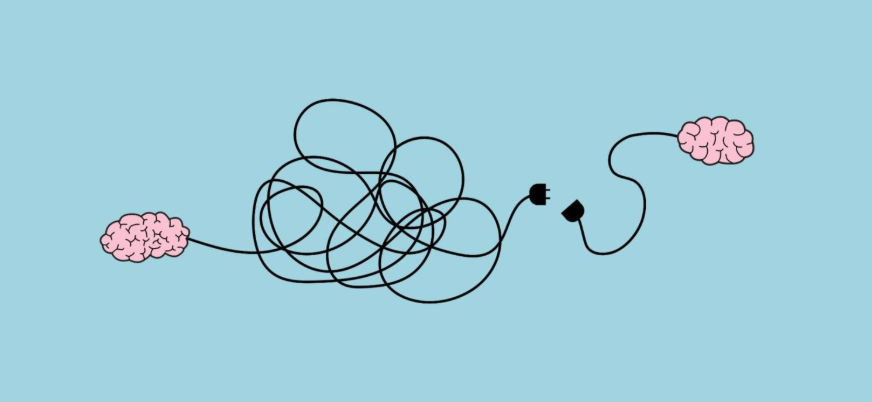
Empowering BC Teachers: Improved Access to Mental Health Services
April 13, 2023
Paced Breathing
April 26, 2023What is your Experience?
Have you ever had the experience of doing a routine behaviour on “autopilot”? For instance, eating chips while watching Netflix and suddenly realizing you have almost finished the entire bag or driving somewhere and not remembering your journey to the destination. Do these sorts of experiences leave you feeling you just missed 15 or 20 minutes of your life? They tend to occur when we perform activities that are so familiar to us, we can do them “without” thinking.
Mindlessness is one term for this phenomenon, it is a mental state characterized by a dependence on actions so governed by rules and routines they are automatic (Mindfulness and Mindlessness, 2016). Mindlessness is neither good nor bad, but there are times when it can be unhelpful. Mindless eating could lead to weight gain and driving inattentively could result in getting lost or worse, in an accident. In a state of mindlessness, we have limited awareness of the present moment and are therefore incapable of altering our behaviour in it. When our mindless actions harm us, it becomes important for us to calibrate by noticing them (Harris, 2019).
What Mindfulness and When are we Noticing it?
Mindfulness, the mental practice, or state of deliberately attending to the present moment non-judgmentally, brings about an awareness of our immediate individual experiences (Grund et al., 2021). Jon Kabat-Zinn, once a student of Zen Buddhist teacher Thích Nhất Hạnh, is credited with introducing the West to mindfulness through his Mindfulness-Based Stress Reduction (MBSR) program (Ellis, 2006). Although mindfulness meditation originates from Buddhism via Hinduism, other world religions including Judaism, Christianity, and Islam engage in similar contemplative practices (Koenig, 2023). In addition to Kabat-Zinn’s MBSR, other cognitive-based therapies such as Acceptance and Commitment Therapy, Dialectic Behaviour Therapy, and Mindfulness-Based Cognitive Therapy utilize mindfulness practices (Mindfulness, 2009).
Noticing the Fundamentals
The two most fundamental aspects of mindfulness are present-moment awareness and a non-judgmental perspective. Present-moment awareness attunes us to our experiences in the here and now and a nonjudgmental stance allows us to be curious about and accept what we experience. This tends to make us more open to our personal experiences (e.g., thoughts, feelings, sensations, emotions, etc.) without overreacting to it (Grund et al., 2021).
Considering the previous example of mindless eating, being mindful of the discomfort caused by eating a bag of chips might cause us to think twice before doing it again. Similarly, a piece of high-quality dark chocolate can be slowly savoured mindfully, or an entire 100-gram bar can be ravenously consumed in a couple of minutes. The behaviour of savouring a piece of chocolate highlights what can happen when we attend to the present moment.
A non-judgmental stance towards devouring a chocolate bar gives us the freedom to consider the experience without guilt or shame. This perspective allows us the ability of noticing thoughts or feelings we might otherwise want to ignore or avoid. Ignoring, avoiding, or trying to rid of unpleasant personal experience usually leads to unnecessary psychological suffering (Harris, 2019). In fact, this may be why mindfulness, non-judgmental present moment awareness, is associated with low levels depression, anxiety, and other phycological difficulties and improved sleep and attention, decreased burnout, and better pain management (Mindfulness exercises, 2022). If you think you, might be suffering unnecessarily or more than you could try practicing mindfulness.
References
Ellis, A. (2006). Rational emotive behavior therapy and the mindfulness-based stress reduction training of jon kabat-zinn. Journal of Rational-Emotive & Cognitive-Behavior Therapy, 24(1), 63–78. Retrieved April 11, 2023, from https://doi.org/10.1007/s10942-006-0024-3
Grund, A., Senker, K., Dietrich, J., Fries, S., & Galla, B. M. (2021). The comprehensive mindfulness experience: A typological approach to the potential benefits of mindfulness for dealing with motivational conflicts. Motivation Science, 7(4), 410–423. Retrieved April 10, 2023, from https://doi.org/10.1037/mot0000239
Harris, R. (2019). Act made simple. New Harbinger Publications.
Koenig, H. G. (2023). Person-centered mindfulness: A culturally and spiritually sensitive approach to clinical practice. Journal of Religion and Health. Retrieved April 11, 2023, from https://doi.org/10.1007/s10943-023-01768-w
Mindfulness. (2009, November 17). Mindfulness. Psychology Today. Retrieved April 11, 2023, from https://www.psychologytoday.com/us/basics/mindfulness
Mindfulness and mindlessness. (2016, January 7). Mindfulness and mindlessness (social psychology) – iresearchnet. Psychology. Retrieved April 11, 2023, from https://psychology.iresearchnet.com/social-psychology/control/mindfulness-and-mindlessness/
Mindfulness exercises. (2022, October 11). Mindfulness exercises. Mayo Clinic. Retrieved April 11, 2023, from https://www.mayoclinic.org/healthy-lifestyle/consumer-health/in-depth/mindfulness-exercises/art-20046356

Written by: Blaine Croy, MA Practicum Student
To book: Click Here





